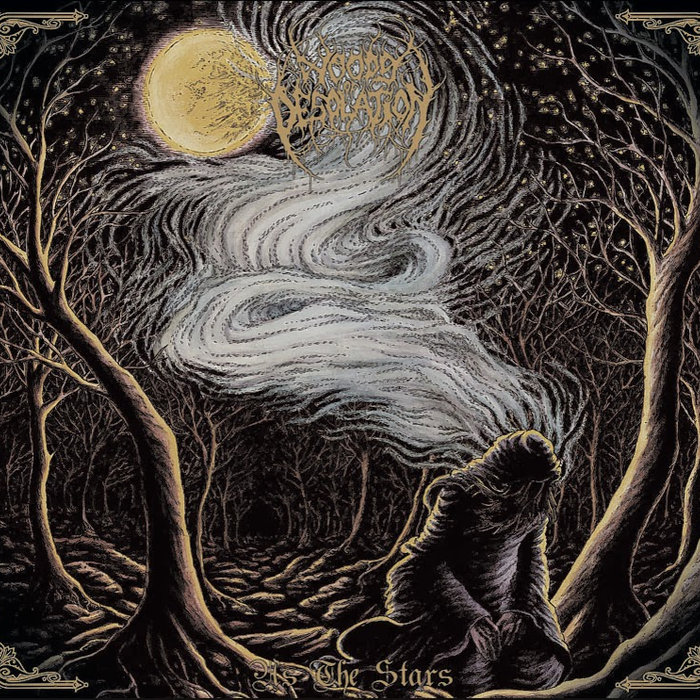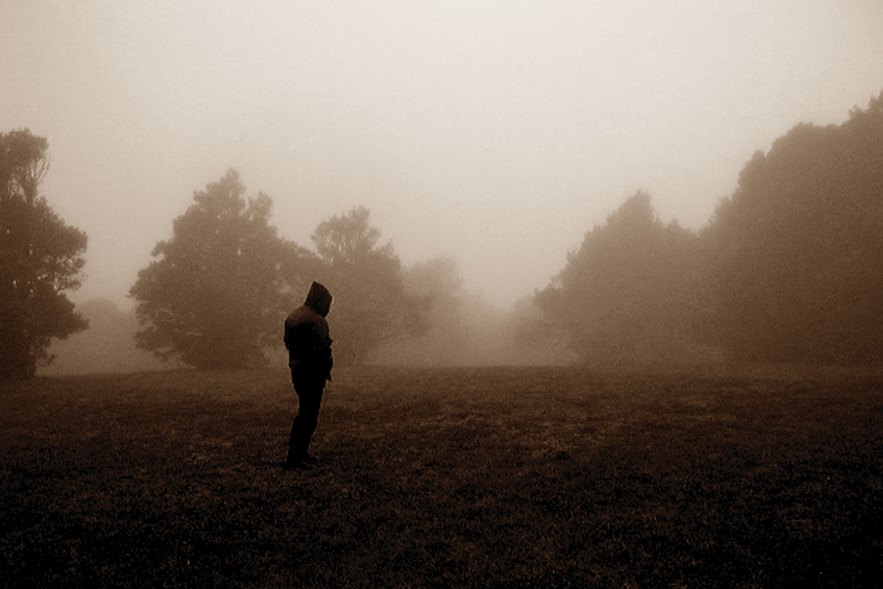
The Australian group Woods of Desolation, piloted by a musician known simply as D., complete the shift from depressive black metal to something brighter and more refined on their third album, As the Stars. As with Deafheaven, post rock’s builds and joyous crescendos make up a huge part of the compositions, lending a triumphal feel to the overarching despair.

Known as D., the musician behind Woods of Desolation has been a prolific member of the Australian metal community for years, gaining notoriety for two now discontinued projects, Forest Mysticism and Grey Waters (with Tim Yatras of Germ). Woods of Desolation’s catalog serves as a logical bridge between the rawer, stripped-down black metal of Forest Mysticism and the atmospheric bummer rock tendencies of Grey Waters—the latter’s influence is given a place of honor on As the Stars. While the band’s always embraced black metal’s melodic potential, the shift from depressive black metal toward something brighter and more refined has been underway for years. The sophomore album, 2011’s Torn Beyond Reason, toyed with shoegaze, and now this third album rocks far more than it rages. That said, As the Stars is still wonderfully atmospheric and melancholy in the deepest of ways.

While Woods of Desolation is ostensibly a one-man operation, D. has a history of collaboration. This album was created with the help of several musicians, including Ukrainian drummer Vlad (Drudkh), and fellow Aussies bassist Luke Mills (Nazxul, Pestilential Shadows) and vocalist Old of Drohtnung, which left D. free to concentrate on those sublime ringing guitar tones that drive the album forward and upward. Post rock’s trademark tremulous builds and joyous crashing crescendos make up a huge part of the seven compositions, lending a triumphal feel to the overarching despair.
Shades of Katatonia’s mournful benchmark Brave Murder Day swim through the gloomy buildup on “This Autumn Light” and “Withering Field”, while D unabashedly recalls Alcest’s earliest, finest work with many of his more grandiose moments. Seminal Australian depressives Austere leave a mark as well, but given that two members have also played in Woods of Desolation at various points, it could almost be seen as more of a continuation than an outright homage. By now this style of “post black metal” could never be accused of outright originality (it’s all been done before, circa 2007) but the listener is at least owed quality, and Woods of Desolation are happy to deliver. As black metal’s edges continue to soften, it’s heartening to come across a band like this who appreciates their roots but is utterly devoid of consternation about their stylistic decisions. Woods of Desolation have lightened up considerably since 2006, but are living proof that not all progress need be disappointing. They’re far better now than they were then, and As the Stars makes it clear that the band is fully aware of it.
source: https://pitchfork.com/reviews/albums/19029-woods-of-desolation-as-the-stars/
Hi! I am a robot. I just upvoted you! I found similar content that readers might be interested in:
https://pitchfork.com/reviews/albums/19029-woods-of-desolation-as-the-stars/
Downvoting a post can decrease pending rewards and make it less visible. Common reasons:
Submit
Good post, thanks u
Downvoting a post can decrease pending rewards and make it less visible. Common reasons:
Submit